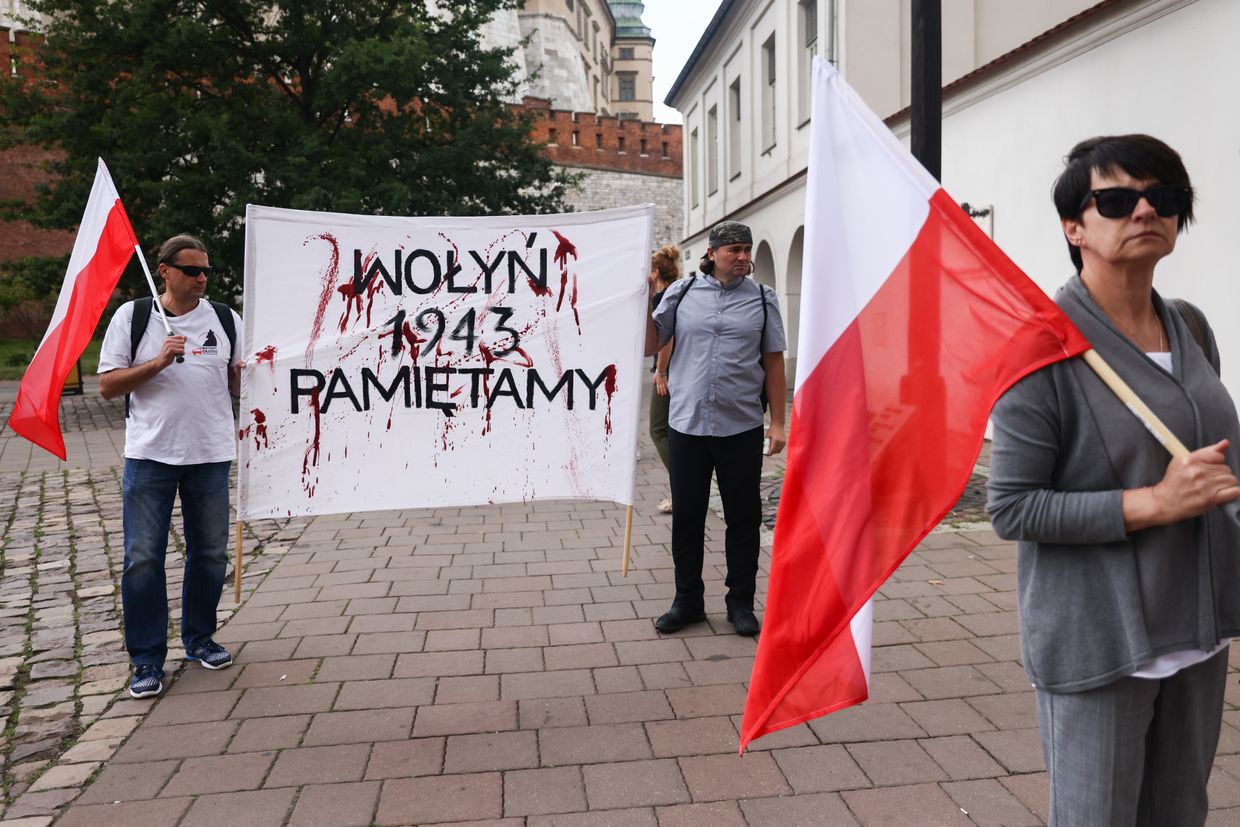Blocking Ukraine's EU accession over Volyn massacre in line with Putin's policy, Poland's Duda says

Threats to block Ukraine's accession to the European Union are in line with Kremlin policy, Polish President Andrzej Duda said in an interview with Polsat News published on Sept 23.
Duda's criticism was in response to recent remarks by Polish Defense Minister Wladyslaw Kosiniak-Kamysz, who said that Ukraine should not join the EU until the historical issue of the massacre of Poles in Volyn is resolved.
The minister was referring to the 1943 massacre of tens of thousands of Poles by members of the Ukrainian Insurgent Army (UPA) in Nazi-occupied Volyn, a region that used to be part of Poland and is now part of Ukraine. Thousands of Ukrainians were killed in retaliation.
Despite several attempts at reconciliation between modern-day Poland and Ukraine, the issue has come to the forefront of public discussion several times, namely during the tenure of the conservative Law and Justice (PiS) party, which was in power between 2015 and 2023.
According to Duda, one of the reasons Putin attacked Ukraine was to prevent the country from joining the EU.
"If someone says in this regard that they are going to block Ukraine's access to the European Union, they are following Vladimir Putin's policy. I don't know if this is the intention of those who are now in power," Duda said.
In summer 2023, Duda visited the town of Lutsk to commemorate with Zelensky the victims of the Volyn tragedy, which was seen as an important move amid the tensions between the two nations regarding the issue.
"It is also in Ukraine's interest to find an understanding with us on all complex issues, including historical ones," Duda said in the interview.
Zelensky promised in 2019 to lift the Ukrainian moratorium on the exhumation of Volyn victims, imposed in reaction to cases of destruction of UPA memorials in Poland.
The matter has not yet been resolved, however, and Polish President Andrzej Duda said in 2023 that obtaining permission for the exhumations plays a crucial role in Polish-Ukrainian relations.
Ukrainian historian Serhii Plokhy, director of the Ukrainian Research Institute at Harvard University, estimates that the number of Polish victims of the massacre varies from 60,000 to 90,000.
The number of Ukrainians killed by Poles in the 1940s is estimated at between 10,000 and 20,000, including between 2,000 and 3,000 in Volyn, according to Polish historian Grzegorz Motyka.
In 2016, Poland's parliament recognized the killings as a genocide, a term that Ukraine denies.













